One Story: Jess

Jess came into the system after being removed from her mother’s care just after her 14 th birthday.
Several intakes were called to child welfare due to Jess having unexcused absences from school, poor
grades, and disrespectful behaviors. She looked “uncared for” when she did arrive and the school’s
attempts to reach Angie, Jess’s mother, had been unsuccessful. Upon DHHS investigation, it was found
that Jess and her mom had been “couch surfing” after being kicked out of their rental home. Some
nights were spent in the car after Angie had lost her job for missing work and not calling in due to having
her cell phone shut off. Angie refused services as she believed that Ron, a former boyfriend, would be
willing to take her back and allow she and Jess to live in his trailer home. Ron had a felony record for
drug possession and a history of domestic violence with Angie. However, Angie stated that “Ronnie and
I don’t use much anymore. We only fight bad when we do.” She believed it would be safe for she and
Jess to stay there now. Angie’s UA returned positive for Methamphetamine. Jess’s father left when she
was in kindergarten and his whereabouts were unknown. Jess was removed and placed into a
traditional foster home.
Hair follicle testing on Jess returned positive for exposure to Methamphetamine. Jess was angry after
being removed and resented the restrictions placed on seeing her Mom. Jess behaved more like the
parent by worrying about her Mom eating and having somewhere to stay. She even called and tried to
set up housing for Angie at the homeless shelter when Angie failed to do it for herself. Jess wouldn’t
express her own needs to those caring for her. She lashed out at her foster parents, threatened to run
away, and resisted any attempts to help catch up on schoolwork. She also refused to wear any clothing
provided by the foster home.
Helen was appointed to be Jess’s CASA Advocate just before Angie’s adjudication hearing. It took
several weeks, but Helen slowly knocked over the walls that Jess had placed around herself. By being
consistent in her contact, providing a journal with sparkly gel pens purchased through her CASA office
(along with the encouragement to write out some feelings), and smuggling a few coveted Kit Kat bars
into school meetings, Helen made headway. Grades started improving. Once Helen spent a little time,
learned Jess and her personality and listened to what Jess wanted, Helen advocated for supervised visits
to change to a youth group room at local church during the week. The visit location change that was
arranged by Helen and approved by DHHS was more comfortable and appropriate than the toy-strewn
room at the visit center that Jess hated. “It smelled like dirty diapers and sweat.” Jess said, “The youth
center is cleaner, and even has a place where we can play music and watch The Simpsons. We learned a
few card games and the lady that watches our visits helped me with Algebra, too! I earned two Kit Kat
bars just last week for improved grades. It isn’t so bad anymore. Mom has started keeping a journal,
too. It helps us to talk about how we are really feeling.”
Helen also helped bridge the relationship with Jess and her Foster Parents by getting Movie tickets
through the CASA office for them to see the new Avatar movie together. This provided a nice, neutral
topic for conversation to begin to flow. She also met with the foster parents, who had only taken small
children previously, and discussed ways to allow Jess appropriate ways to be in control. They needed
help seeing that Jess went from being the decision maker with her mom to having no say about her life
in foster care. The foster parents thought they were giving love and structure, but Jess was feeling
smothered and controlled instead. This created a huge power struggle. The Foster Parents began giving
Jess independence all the ways they could, and this helped Jess to stop rebelling against them.
Things are going so much better 8 months in. Jess has all B’s and one C for her grades and is talking
openly with her counselor and foster parents. After perfect attendance last quarter, CASA got her a gift
card for the pedicure she wanted so badly. Jess loves journaling and got a bunch of stickers to use,
along with more gel pens. She is thinking of going out for volleyball in the fall and Helen said she would
come to the games in addition to their school lunch dates. CASA will provide Volleyball knee pads for her
to have. Angie is in IOP and learning how to maintain sobriety. She is living in a small rental that she
learned about through another custodian at “Clean as a Whistle” where Angie works nearly full-time
hours. Now visits are semi-supervised at the rental home and both Jess and Angie are hoping to start
overnights before the school year begins. The landlord said Jess and Angie could paint Jess’s bedroom
purple and is even buying the paint! Angie no longer associates with Ron, or anyone else who may
endanger her sobriety. After a slow start, one relapse and some frustration over drug patch
requirements, Angie has not had a positive drug patch for over 4 months. Both Angie and Jess say that
having Helen there to help them navigate has been helpful. Jess says Helen is like “a cool aunt” and
Angie says it is easier to work with Helen because she doesn’t work for DHHS, or a lawyer. “Helen
doesn’t have a scorecard, ya know? She doesn’t have a horse in the race. She just comes and talks to
everyone. Helen makes things better me, and for Jess.”
This is Helen’s fourth CASA case. She says that every case she takes she learns more about the child
welfare system and how to navigate it. “The system is overwhelmed with cases. Caseworkers are
overworked, services are limited, and everyone is frustrated.” Helen explains. “I just go in and take a
little extra time for that one family. I love being a CASA. Even when things are rough, I know that I am
helping. Caseworkers, Lawyers, placements, schools and even counselors change……. but I don’t!”
Helen smiles. “I am the constant, and she knows that I am not going anywhere until she is safe and
settled. Heck, I may not even go then!”
*This is based on a true case. Names and specifics were altered enough to preserve anonymity.
Do you think you could help a child like Jess? Contact our office today for more information!




